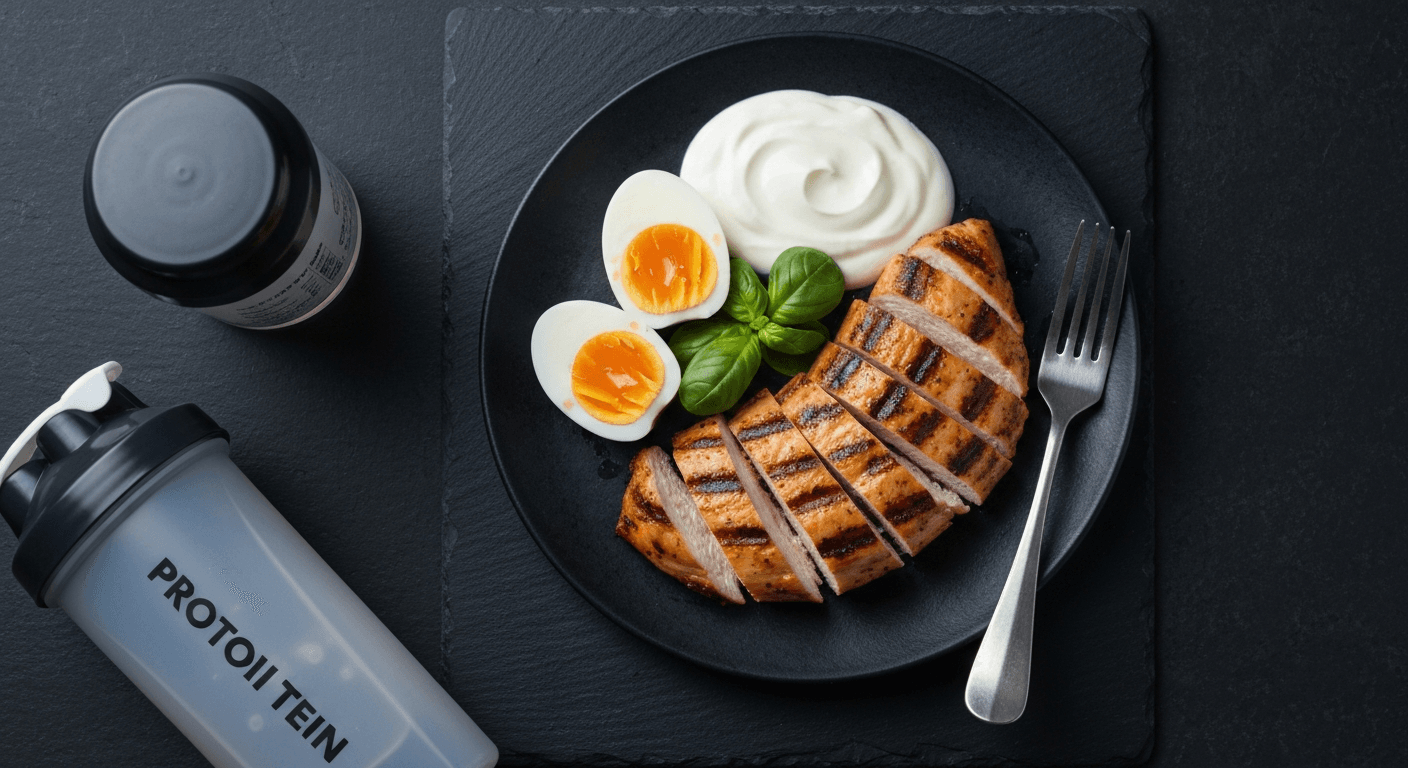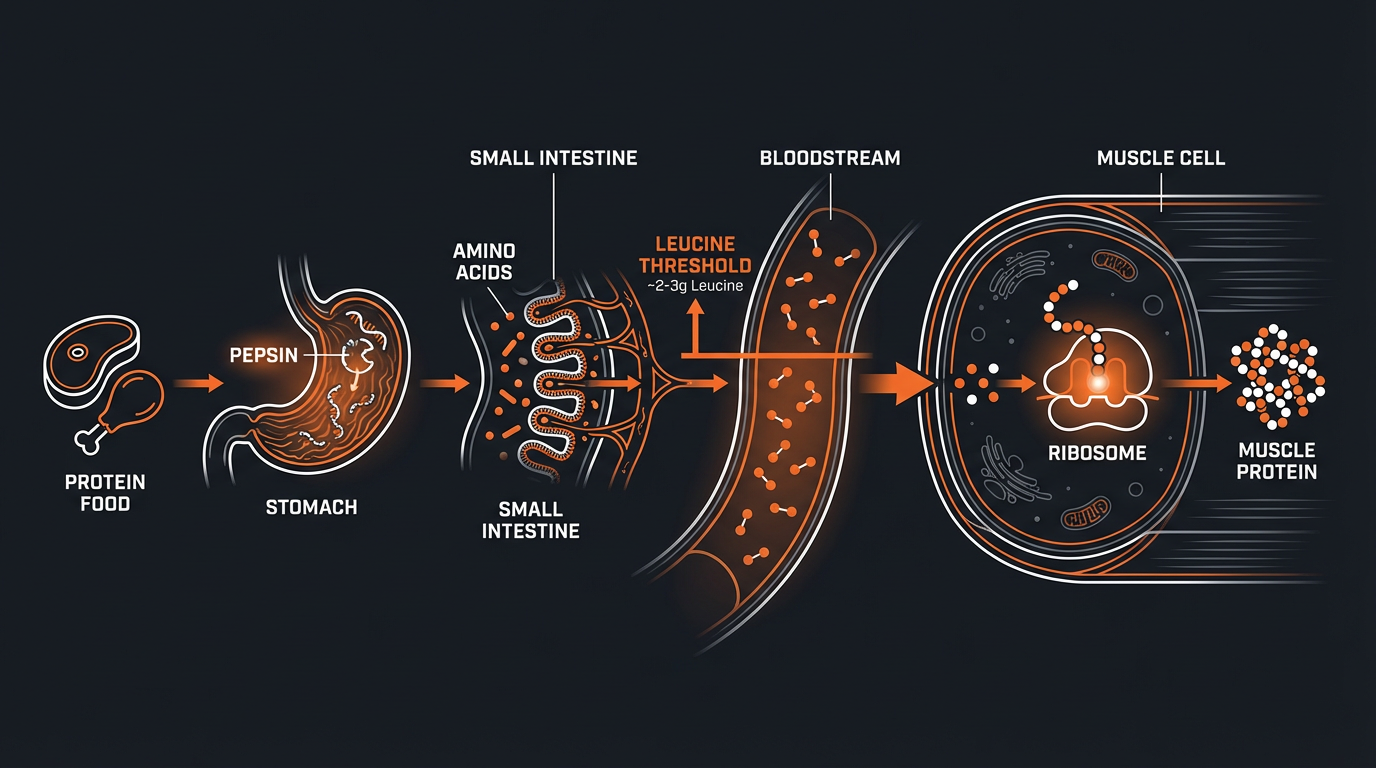Plant-Based Protein Sources: Complete Guide for Vegetarians and Vegans
Read our comprehensive guide on plant-based protein sources: complete guide for vegetarians and vegans.

Key Takeaways
- Lentils pack 18 grams of protein per cooked cup and you can throw them in basically anything.
- Quinoa is the king of plant proteins because it has all nine essential amino acids your body needs.
- Two tablespoons of hemp seeds gives you 10 grams of protein plus healthy fats for your smoothies or salads.
- Mixing rice with beans or peanut butter with whole wheat bread creates complete proteins that rival meat.
- You can easily hit your protein goals on plants if you eat a variety of legumes, grains, nuts, and seeds throughout the week.
Get a Free AI Coach on WhatsApp
Ask questions, get workout plans, and track your progress — all from WhatsApp.
Message Your CoachTransitioning to a vegetarian or vegan diet can be a fulfilling and health-enhancing decision, yet one of the common concerns is ensuring adequate protein intake. This comprehensive guide on Plant-Based Protein Sources: Complete Guide for Vegetarians and Vegans will help you explore diverse plant-based protein options. We will delve into various high-protein foods, debunk myths, and provide practical tips to enrich your diet.
Understanding Plant-Based Proteins
Proteins play a crucial role in repairing tissues, building muscles, and supporting overall health. Vegetarians and vegans might wonder if they are getting enough protein from their diet. The truth is, with the right choices, plant-based diets can provide all the essential amino acids your body needs.

Top Plant-Based Protein Sources
1. Legumes: Nutrient-Dense and Versatile
Legumes such as lentils, chickpeas, and black beans are excellent sources of protein. For example, one cup of cooked lentils provides about 18 grams of protein (Nutrition Data). Additionally, they are rich in fiber, iron, and other essential nutrients.
- •Lentils: A cup of cooked lentils offers an impressive protein punch along with a good supply of fibers and essential minerals.
- •Chickpeas: Use them in salads, or make hummus for a tasty, protein-packed dip.
- •Black beans: Great for soups, stews, and even in veggie burgers.
2. Whole Grains: More Than Just Carbs
Quinoa, farro, and barley are whole grains that not only provide carbohydrates but also substantial amounts of protein. For instance, one cup of cooked quinoa has about 8 grams of protein. It's also a complete protein, meaning it contains all nine essential amino acids.
- •Quinoa: Easy to cook, versatile, and a complete protein source.
- •Farro: Adds a chewy texture to salads and soups while providing a good protein boost.
- •Barley: Perfect for stews and casseroles, enhancing both nutrition and taste.
3. Nuts and Seeds: Small but Mighty
Nuts and seeds are perfect for snacking, and they deliver a substantial protein pack. Items like almonds, chia seeds, and hemp seeds provide a good amount of protein along with healthy fats and micronutrients.
For example, two tablespoons of hemp seeds offer around 10 grams of protein, along with essential fatty acids. Chia seeds, on the other hand, can be added to smoothies, yogurt, or even made into a pudding.
Combining Foods for Better Protein
As a vegan or vegetarian, combining different plant-based foods can help you attain a complete amino acid profile. For instance, eating rice with beans or whole wheat bread with peanut butter forms a complete protein.
Practical Tips for Protein Combining
In your daily meals, try to mix and match various plant-based proteins to meet your nutritional needs:
- •Add a handful of nuts or seeds to your salads for an extra protein boost.
- •Incorporate a variety of whole grains in your diet to achieve different nutrient benefits.
- •Consume a diverse range of legumes throughout the week.
Addressing Common Concerns: Protein Deficiency Myths
One prevalent myth is that you cannot get sufficient protein from plant-based sources. However, research supports that a well-planned vegan or vegetarian diet can meet, and even exceed, protein requirements (NCBI). The key lies in variety and ensuring a balance between different food groups.
Another concern is about complete proteins. While some plant-based sources might not be complete proteins individually, consuming a variety of them can adequately fulfill your amino acid requirements.
Conclusion
Choosing a plant-based diet does not mean compromising on protein. With awareness and variety, vegetarians and vegans can consume sufficient protein for optimal health. Whether through legumes, whole grains, nuts, or seeds, countless delicious and nutritious options are available. By combining these foods effectively, you can ensure you're getting all the essential amino acids your body needs.
If you've found this guide on Plant-Based Protein Sources: Complete Guide for Vegetarians and Vegans helpful, check out our additional resources and recipes to enhance your plant-based culinary journey. Start incorporating these rich protein sources today for a healthier, vibrant you!
Call to Action: Subscribe to our newsletter for more tips, recipes, and guides to perfect your plant-based diet.
Frequently Asked Questions
- What are the best plant-based protein sources?
- Tofu (20g per cup), tempeh (31g per cup), lentils (18g per cup cooked), chickpeas (15g per cup), edamame (17g per cup), and seitan (25g per 3.5oz). Combine a few of these daily and you'll hit your targets without much trouble.
- Is plant protein as effective as animal protein for muscle?
- Per gram, most plant proteins have slightly lower leucine and digestibility. But when you eat enough total protein from mixed sources, the difference in muscle-building outcomes is small. Vegans may want to aim slightly higher, around 1g per pound, to account for this.
- How do vegans get all essential amino acids?
- Eat a variety of protein sources throughout the day. You don't need to combine them in one meal. Grains are low in lysine but high in methionine, while legumes are the opposite. Eating both at some point during the day covers all bases.
- What plant food has the highest protein-to-calorie ratio?
- Seitan is hard to beat at roughly 75g of protein per 100g. After that, tempeh, tofu, and spirulina are all protein-dense. For whole foods that don't require processing, lentils and edamame give you the best protein bang for your calorie buck.